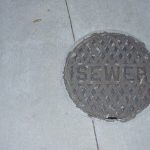With the various issues, 2020 has brought, Sheltering in place has become more commonplace. This safety measure has changed our lives in thousands of ways, both big and small. Unfortunately, this includes our bills.
When you’re spending all your time at home, you’ll be using more electricity, water, and cooling. As winter approaches, you can also expect to spend more on heating. This can cause your utility bills to become unmanageable. Fortunately, there are ways to maintain more manageable bills by making some simple habit changes that can improve your efficiency.
Turn Off the Faucet When Washing Your Hands:
At the top of the list of prevention measures for COVID is washing our hands. So, you’re likely to be washing your hands far more than usual. Additionally, if you’re following CDC guidelines, you’ll be washing your hands for at least 20 seconds. So, be sure to turn off the faucet while you are washing your hands.
You should only need to run the water when you lather up and then when you rinse. This should only require a few seconds of water rather than 20 seconds or more.
While this may not seem like much, but if you do the math, you may be surprised at how much water you can save.
If you wash your hands eight times a day on average and allow the water to run for an unnecessary 17 or 18 seconds each time, this wastes 144 seconds of water. An average faucet uses up to 3 gallons of water per minute. So, during an average day, you could waste up to 6 gallons of water. If you start turning off your faucet while you’re washing your hands, your water bills should reflect this change immediately.
Unplug Your Non Essential Electronics:
We live in an electronic era, but are you aware that your electronic devices continue to consume power even if they are turned off when you keep them plugged in. The list of devices that consume some power when turned off includes appliances, televisions, stereos, charges, and lots of other common electronics.
These individual devices don’t use much power, but together can add up to a lot of wasted energy. The Department of Energy refers to this phenomenon as “vampire” energy usage and estimates it can add up to 5-8% of the average annual energy bill of American households.
So, it is important to check throughout your home for any electronics that are not in use, but you tend to keep plugged in. The chances are that you have more than a few in your home. Start with the obvious electronics, such as your computer and TV, but don’t overlook other devices such as clocks, lamps, chargers, and other things you’re not currently using. Just be sure that you don’t go crazy and unplug things that you really need.
Open Windows:
When you’re trying to keep your heating and cooling costs in check, it may seem silly to even consider opening windows. Additionally, many people are concerned about allowing COVID to blow into their homes through any open windows. Fortunately, this is not something you need to worry about. In fact, the CDC recommends opening windows to prevent stagnation and encourage fresh air to circulate inside your home.
What you may not be aware of is that opening windows can also benefit your energy bills. While in the height of summer, you won’t want to allow the hot air outside in, this may not be the case in spring or fall. Yet, when you feel warm, you may automatically reach for your thermostat. By opening your windows, you can let some cooler air in and have less reliance on your AC. You can also keep your shades up to allow natural sunlight in. This can help you to use fewer lights during the day and provide you with a vitamin D boost.
Check for Leaks:
While it is tempting to catch up on your favorite TV shows while you’re stuck at home, you can put your time to better use. A shelter in place recommendation is the ideal time to check what home maintenance tasks need attention. This includes checking for leaks. Leaks can be a massive drain on your home efficiency, but they may be easy to detect to help keep your bills manageable.
- Air Leaks: One of the simplest ways that your HVAC system can be compromised is by air leaks. If there is a gap around your door or windows, or your ductwork has holes, you’re paying to cool or heat air that is literally going straight outside. Inspect the doors and windows throughout your home. Check for cracks in the frames and hold your hand or a candle around to see if you can feel air movement. It is also worth checking your attic, basement, or crawl space to inspect the condition of your ductwork.
- Plumbing Leaks: If you have a leaky faucet that drips just four times a minute, it will waste as much as 138 gallons of water each year. If you have a hairline fracture in one of your pipes, it will be wasting even more. Any type of leak, regardless of how inconsequential, will be costing you money. So, don’t ignore any dripping, moisture spots, or damp patches, as they could be a sign you’re wasting money every day. Although you’re looking to save money, calling in a plumber to fix any plumbing leaks will save you a great deal in the long run.
Many people find sheltering in place to be a depressing time, and this can only be made worse by skyrocketing bills. Fortunately, there are some simple ways to make some basic changes around your home to save energy, water, and other utilities.
By taking note of these tips and taking some proactive action, you can maintain manageable bills while you’re sheltering in place and enjoy a greener home. This will help you to focus on other things during the duration of these trying times, enjoy a hobby, or even learn a new skill.
By Giovanni Longo President Flood Brothers Plumbing
Giovanni Longo is a 3rd generation master plumber who has been practicing his craft and trade in the greater Los Angeles area for well over a decade and a half. A plumbing and hydraulics-engineering innovator, Giovanni’s particular world-class expertise focuses on dealing with challenging sewer system designs as well as resolving complex commercial and residential draining issues. As a certified Flood Mitigation expert, he is also well versed in a wide variety of water damage and remediation solution.





